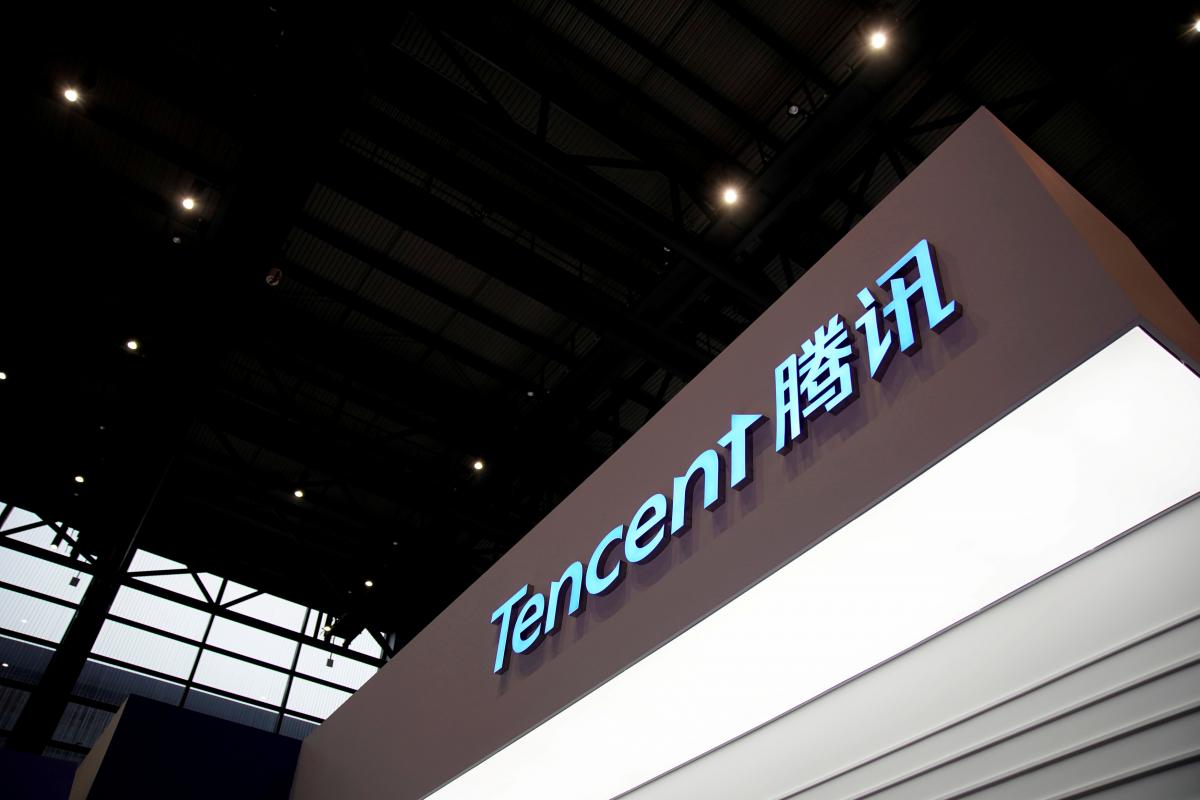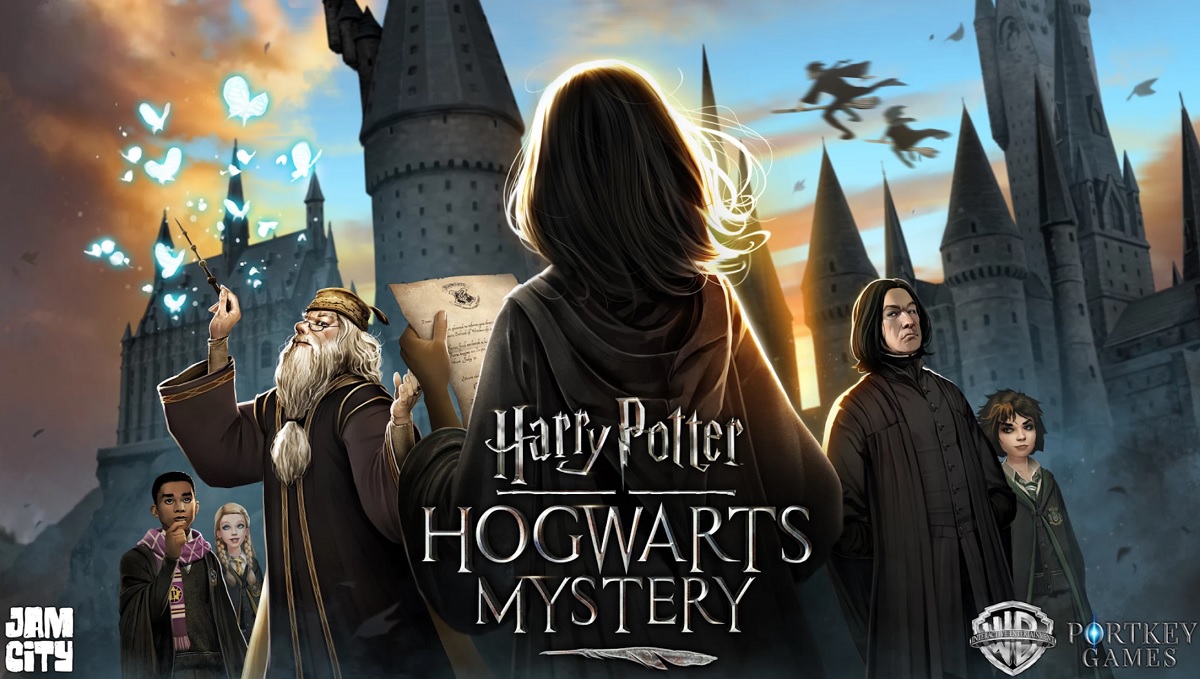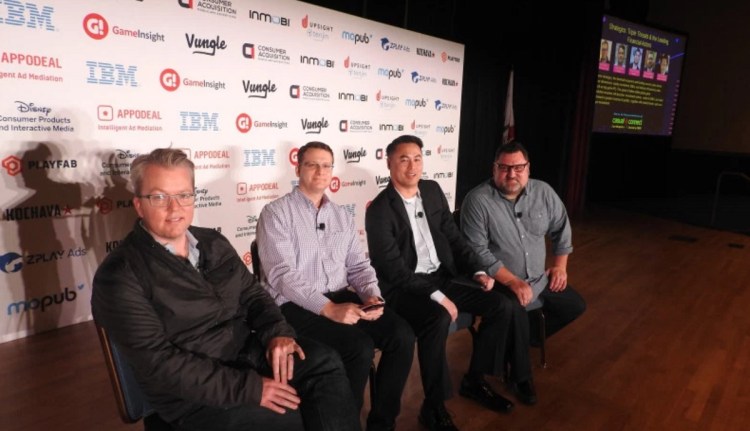GamesBeat: I like to get a handle on just how many acquisitions are happening and how many dollars are going in every year. I used to track that back in 2011-2012, and then Digi Capital picked it up. Pitchbook has some material, but they don’t publish it very often. We’re left a bit in the dark as to where the trends are going with acquisitions in the game industry. Is it going up or going down?
Chang: Let’s ask the audience. How many of you can name a major acquisition of a game company in 2017?
GamesBeat: EA acquired Respawn for $455 million.
Chang: Nexon acquired Pixelberry. How many of you know what Pixelberry is? Targeting a demographic of women with story-driven games. They’re expanding an audience. It’s quite a sizable company. But any other major acquisitions? Exactly.
GamesBeat: The interesting thing was those were the same week. The same bidders were going for both companies.
Chang: If we were talking about 2016 I bet there would be a lot more names out there, or 2015. Remember the times of Playdom and Playfish, when all the Facebook games were getting acquired.

Above: A sign of Tencent is seen during the fourth World Internet Conference in Wuzhen, Zhejiang province, China, December 3, 2017.
GamesBeat: One thing Pitchbook does have is their list of the biggest deals. The biggest deal of all time in games is Tencent putting money into Supercell for most of it, when it had a $10.2 billion valuation in mid-2016. Disney only paid $4 billion to buy Lucasfilm. It’s an interesting number to compare. Activision paid $5.9 billion for King. IGT got acquired for $4.7 billion. Mojang for $2.5 billion. We have some real numbers here. I suppose you guys don’t feel like you’re in the wrong sector as far as activity.
Rupp: It certainly feels very active in the deal markets. Maybe there aren’t as many big fish to go after anymore, but there are a lot of attractive, profitable, growing companies in the $20-100 million revenue range. All those processes are quite competitive, but the pricing is still quite reasonable. You have to win. You have to outmaneuver others. But there’s a lot of action and a lot of opportunity to create value still.
Chang: The way things worked doing M&A in 2010 and 2013, basically, if you didn’t do it, Zynga would do it. It felt very much like you had to do it, or you would lose an opportunity. The good news, at least from this perspective, is that there’s time for due diligence, time to do work and find the right companies.
I’d say the good news for this audience here as well — back in 2010 and 2011 people were joining the business because it was the flavor of the month. They wanted to go into the hot area. I like how things are now, because people who are in the space — it’s not the easiest area, so these are people who are dedicated to games. I enjoy working with real game developers, people who are passionate about making games, seeing their products out there, seeing people playing and enjoying them.
It’s a give and take here. We have time to do more work, to look for real and meaningful companies. You get the chance to build good and meaningful companies and have fun doing it, without having a lot of money running around just because the business is hot.
Bergel: That’s right. I think a lot of those early, old exits were companies that were not solid yet. They were probably bought for values for too high. They burned a lot of acquirers and killed the interest for a little while. But I see that as an opportunity. Where we specialize is working with small to medium-sized developers who have good teams, but are looking for a way to break through in the app store. We have IP and access to the database of customers from across the company. We can connect game makers with our data and the properties we have. We’re in a very unique situation to help some of these guys who are maybe not getting the exit, but we can help them break through and get to the next level.
 GamesBeat: Why aren’t you guys all going into cryptocurrency and Bitcoin mining?
GamesBeat: Why aren’t you guys all going into cryptocurrency and Bitcoin mining?
Chang: It’s funny that no one brought that up. How many of you think cryptocurrency is an interesting area for gaming? Did any of you play Crypto Kitties? [laughter] We just had Brian Fargo on from inXile. Those are new opportunities. We have to figure out if there’s something real to be had there. But that’s potentially a new area of growth. In the existing areas, there’s still no leader in racers or shooters. Let me take one aside here. In general, EA, Activision, Take-Two, they haven’t launched a linear racer or shooter in a while. Is there still opportunity there? I think so.
When I was at EA, Disney bought Lucas. In the announcement, Disney talked about the movies and Star Wars and Lucasfilm and Skywalker Sound, but they didn’t say anything about the game studios. The Lucas games guys all said, “Hold on, are we going to have jobs?” It turns out that led to this question internally at EA that bubbled up, which led to the licensing deal that created Star Wars: Galaxy of Heroes, Battlefront, Battlefront II.
In these sorts of big deals, there are opportunities for everyone. Disney has reportedly signed a deal with Fox that’s going to take some time to play out. Could you do something with that? What could you do with that? I like to point out areas of opportunity that might not be immediately obvious, but there might be something that one of us could play on.
GamesBeat: There’s this idea that some franchises come and go, or rise and fall. It’s interesting that in 2018 we may get two Harry Potter games on mobile, one from Niantic and one from Jam City. The Jam City folks said, “We’re attracted to this because there hasn’t been a big Harry Potter game on mobile yet.” The opportunities seem to materialize sometimes.
Heatherly: What I think is interesting when we talk about IP is that if you look at almost every major franchise, what you see is one game that’s really big, and then three or four games that are pretty small. The one game is almost always around 70 percent, and then the other 30 percent is divided up. If you’re Marvel, and you’re the biggest brand on mobile, that 30 percent can still be something pretty meaningful. If you’re smaller, that 30 percent is a challenge.
Part of that, I think, is an artifact of the licensing model. What’s happened is that when you license five different companies with five different games, one of them ends up with higher LTV, and they beat the other guys on Facebook with user acquisition instead of cross-promoting across the network, which is the way King and Playrix these guys get big. We’re trying to build our network and use the success of one game to drive the success of the next game. We’ll see how it works, but that’s our operating theory.
It’ll be interesting to see what happens with something like Harry Potter that’s got two games. Do they both find an audience or does one win out?
Chang: To talk some more about what Chris is saying, let’s pick on Marvel for a minute. Let’s be careful, because I’m a huge Marvel fan and I’d like to get something from them someday. [laughs] But can you name the Marvel titles out there in mobile right now, all of them? Future Fight, Puzzle Quest? Are the old DeNA games still out there? I don’t know. One game, Kabam’s Contest of Champions, has the highest LTV. If they can spend on Facebook and buy more fans of Marvel than anyone else, maybe you shouldn’t have so many licensees out there.

Above: Jam City will let you attend the school for magic in Harry Potter: Hogwarts Mystery.
GamesBeat: The two Harry Potters seem to be in pretty different categories, though.
Chang: That’s what they all say. One’s a city-builder, one’s more like Clash Royale — that kind of genre differentiation will be key.
What do you think is the best, most valuable license right now on mobile? If you could get a license in mobile right now for a reasonable price, what IP would you chase? What do you think is popular right now? I’d like to hear from the audience. Star Wars? Pokemon? I bought the studio that made Simpsons Tapped Out. It’s been a long time since there’s been a new Simpsons game. Family Guy? Has anybody seen a movie title that’s become a top-grossing title, a very successful title? Me either. That’s interesting.
Bergel: The problem with movies is that you can’t drive a free-to-play game with just one movie. Star Wars can work, or something like Fast and Furious can work.
GamesBeat: Some of the VCs out here may be looking to you guys for some guidance as far as what you’re interested in. That’s one question. The second question is, who do you look to for guidance? Do you look to Hollywood companies, IP holders? Do you look to platform owners? First question first, what should venture capitalists learn from your actions as far as where they should be thinking about investing?
Rupp: For us, we’re maybe a little different from some others. We have a bit of an aversion to licensed IP. Mostly because we’re a broadcaster that licenses a lot of IP for television. Every year we grow the audience and pay more for rights, which is a tough model. So we have a bias toward companies that own their own IP. That’s what we’re looking for, for the most part, when we’re buying game companies.

